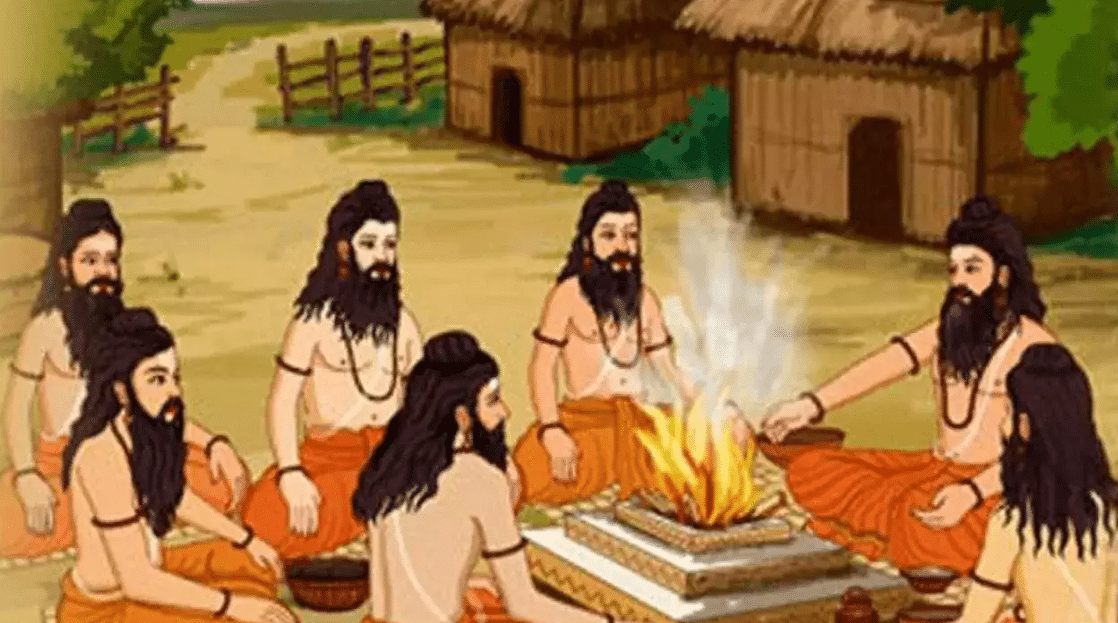
Informative
Identifying Your Gotra and Traditions
In Hindu tradition, identifying one’s Gotra (ancestral lineage) is of deep spiritual and cultural significance. The Gotra represents the family lineage or clan tracing back to ancient sages (Rishis), and it is essential to know it during religious ceremonies like Puja (worship), Archana (ritual offerings), and Havan (fire rituals). Understanding your Gotra not only connects you with your ancestors but also helps in recognizing your Kuldevta (family deity) or Kuldevi (family goddess), who is worshiped to ensure the well-being and protection of the family.
Why Knowing Your Gotra is Important ?
When a person participates in any religious ritual or Sankalpa (resolution), the first question a Pandit (priest) asks is about your Gotra. This is because the Gotra identifies your lineage, which determines the rituals and prayers that are most appropriate for you. Knowing your Gotra also helps in following specific family traditions and worship practices, which have been passed down through generations.
Sometimes, people are unaware of their Gotra, but they may notice that certain Puja or Havan is performed regularly in their family during festivals. This can be a clue to the family’s Gotra. It is believed that these customs and traditions are linked to your ancestors’ spiritual practices, which further reveal your Kul Gotra.
How to Discover Your Gotra ?
If you are unsure about your Gotra, there are ways to discover it. One of the most famous places for identifying Gotra is Siddhvat Ghat in Ujjain, located near the Mahakaleshwar Temple (a prominent Jyotirlinga, or sacred Shiva shrine). Here, the priests keep ancient ledgers that have recorded family details for generations. These ledgers contain the names of ancestors, along with their Gotra and native place, helping you trace your lineage.
The Pandas (family priests) maintain these ledgers in other pilgrimage sites like Haridwar, where records are carefully preserved over time. If your family has a family priest, or you have elders at home, you can ask them to help identify your Gotra and the original place your ancestors came from. This connection to the past strengthens your link to your Pitru (ancestors) and roots.
Importance of Pitru Shanti and Pind Daan
Honoring ancestors is a central theme in Hindu spirituality. To bring peace to the souls of your departed ancestors, rituals like Pitru Shanti Prayog and Pind Daan are performed. These ceremonies help the souls of ancestors transition to a peaceful afterlife and bless the living family members.
1. Pitru Shanti Prayog
This ritual involves performing Tarpan (offering water) and other sacred rites at a pilgrimage site, often on the banks of a holy river like the Ganga. A qualified Brahmin conducts these rituals, ensuring that the ancestors receive the offerings and blessings, helping them achieve peace and spiritual elevation.
2. Pind Daan
Pind Daan is the offering of rice balls (pindas) to the ancestors, symbolizing nourishment for their souls. It is believed to be essential for Pitru Shanti and is typically performed at places like Gaya, Haridwar, or on the banks of sacred rivers. This ritual allows the ancestors to receive the necessary energy to progress in their spiritual journey.
Rituals to Honor Ancestors
There are specific spiritual practices that can be performed to ensure the peace and satisfaction of your ancestors:
1. Tarpan and Havan
Offer Tarpan by pouring water in the name of your ancestors on the banks of a sacred river. You can also perform a Havan or Yagya (fire sacrifice), invoking the blessings of the ancestors and seeking peace for their souls.
2. Milk Offering to Brahmins
On Amavasya (new moon) days, you can offer milk in the name of your ancestors to a Brahmin in a temple. This act of charity is believed to bring blessings from the Pitru.
3. Satyanarayan Katha and Feeding Brahmins
Narrating the Satyanarayan Katha (a sacred story of Lord Vishnu) on Purnima (full moon) or Amavasya and feeding sweets and food to Brahmins is considered highly auspicious. It is a way to honor the ancestors and ensure their continued blessings.
4. Shanti Paath
Conduct a Shanti Paath (peace prayer) for your ancestors. This involves reciting sacred texts like the Bhagavad Gita and Vishnu Sahasranama (the thousand names of Lord Vishnu) to bring peace and spiritual upliftment to the souls of the departed.
5. Offering Water to the Sun and Peepal Tree
Every day, offer water to the Sun God (Surya Dev) at sunrise while reciting prayers. It is also a common practice to offer water to a Peepal tree (considered sacred in Hinduism) mixed with sweetness like sugar or jaggery, and milk. Avoid using copper vessels when offering water with milk, though a copper lota can be used for offering sweetened water.
6. Light a Lamp for the Ancestors
During festivals or special family occasions, light a lamp in honor of your ancestors. Offer them food, bow in respect, and seek their blessings. This practice strengthens the bond between the living and the departed souls.
7. Serving Parents and Elders
One of the most direct ways to honor your ancestors is by serving your parents and elders with love and devotion. This not only pleases your Pitru but also brings blessings to your family.
The Significance of Shraddha Paksha
Shraddha Paksha, also known as Pitru Paksha, is a fortnight dedicated to honoring ancestors before the festival of Navratri. During this period, special prayers and offerings are made to ensure the ancestors are satisfied and at peace. It is believed that worshiping the Goddess during Navratri becomes more fruitful if the ancestors have been honored and satisfied beforehand. Thus, Shraddha Paksha holds immense spiritual importance.
Conclusion: Strengthening Your Connection with Ancestors
Knowing your Gotra is a way of connecting with your roots and honoring the legacy of your forefathers. It plays a vital role in Hindu rituals and helps in performing the appropriate spiritual practices for the well-being of your family. In addition, remembering and paying homage to your ancestors through rituals like Pitru Shanti, Pind Daan, and Tarpan brings peace to their souls and ensures their blessings for generations to come.
By recognizing the importance of your Gotra and following the traditional rituals, you deepen your spiritual connection to your lineage, ensuring that both your ancestors and future generations are spiritually protected and blessed.
–H.H. Shri Chamunda Swamiji.
Even though plenty of literature is available on spiritual practices, it is highly recommended that one learn these methods under the supervision of a Guru or an expert. Everyone has unique spirituality, personality, and experiences. One solution cannot fit all. Therefore, seeking guidance from spiritual experts is imperative to get that unique mantra, meditation, and spiritual method crafted exclusively for you for the spiritual awakening you seek. And hence, we recommend you practice these interpretations and practices mentioned above under the guidance of an expert.
Please subscribe to our mailing list to stay connected and receive spiritual information. In case of any queries, please write to us at info@chamundaswamiji.com. You can check out our YouTube channel Chamunda Swamiji where you can learn Tantra, Mantra, Yantra, and Meditation from His Holiness Shri Chamunda Swamiji. If you seek to learn Shakti Kriya, please register with us, and we will get back to you.
Post a Comment
-
Subscribe to Our Blog
-
Categories
-
Popular Articles
- Dead moth in the house. What universe is trying to tell you?
- Spiritual Meaning of Moth
- Vivah Bandhan Curse – What Is It and How to Spiritually Heal It.
- The Dasa Mahavidyas
- What are Beej Mantras?
- Tripura Sundari | The Dasa Mahavidya
- Maa Bhuvaneshwari | The Dasa Mahavidyas
- The Five Shades of Tantra
- Ramakrishna Paramhansa – The Man who almost became a Woman
- Maa Chinnamasta | The Dasa Mahavidyas



